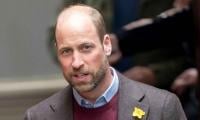Avenfield case: SC maintains bail of Nawaz, Maryam, Safdar
The bench ordered that the defendants' bail in the Avenfield case would be maintained while the NAB plea against the matter of the suspension of the sentences would be heard separately.
ISLAMABAD: The Supreme Court of Pakistan on Monday admitted the National Accountability Bureau's (NAB) appeal for hearing about the suspension of the prison sentences of former prime minister Nawaz Sharif and his daughter Maryam Nawaz and son-in-law Captain (retd) Safdar in the Avenfield corruption reference.
A three-member bench of the apex court, headed by Chief Justice Mian Saqib Nisar and comprising Justice Mushir Alam and Justice Mazhar Alam Miankhel, heard the case. The bench ordered that the defendants' bail in the case would be maintained while the NAB plea against the matter of the suspension of the sentences would be heard separately. The apex court said it would see if there was any need to change the bench or constitute a larger bench to hear the appeal over the suspension of the sentences.
On July 6, Nawaz Sharif, Maryam Nawaz and Capt (retd) Safdar were awarded 10 years, seven years, and one year imprisonment, respectively, in the Avenfield apartments corruption reference. However, on September 19, the Islamabad High Court (IHC) suspended their sentences and gave a detailed judgment on the petitions filed by the Sharifs.
The next hearing of the NAB's appeal against the IHC's suspension of the sentences will be held on December 12. The court on the last date of hearing had asked Khawaja Haris, counsel for the Sharif family, as well as Akram Qureshi, Special Prosecutor NAB, to submit written propositions.
During the hearing, Justice Saqib Nisar commented that distrust in the judicial system should be put to an end. On Friday, the chief justice said that the written propositions, submitted by Khawaja Haris were very lengthy, adding that they had asked the counsel to submit the propositions point wise.
Khawaja Haris replied that every case has its own status, adding that in death sentence cases, the court had suspended the sentences. At this, the chief justice asked the counsel for the Sharif family whether he was relying on the verdicts given by Justice Asif Saeed Khan Khosa. “Whether you will raise objection if we make Justice Khosa part of this bench,” the CJP asked Khawaja Haris and remarked that confidence should be posed in courts.
Khawaja Haris submitted that he has no objection if the court constitutes a larger bench to hear the matter. The chief justice said that as he is leaving for abroad, then why the matter should not be heard upon his return and by that time his health will also be stable.
On Nov 10, Nawaz and Maryam submitted their replies to the apex court and defended the IHC verdict and appealed tothe SC to reject the accountability watchdog’s request to revoke their bails. In his response, Nawaz urged the court to reject NAB’s plea against the suspension of their sentences. He stated that the accountability court announced its decision without providing any evidence of the value of the London flats. “No records were provided which could prove the value of the properties,” the response adds.
Nawaz further argued that the high court did not go into the depth of the evidence provided in the reference and that the decision was not a final judgment, rather a prima facie observation. “I was made the owner of the flats based on mere impression in the accountability court’s judgment,” he argued.
Maryam in her reply asserted that there was no evidence against her pertaining to the ownership of the London flats and that the NAB appeal should be rejected by the SC. She argued that without having ascertained the value of the flats, the question of her abetment cannot be raised and that even if the value was determined, her guilt cannot be proven without fulfilling the requirements of the accountability laws.
-
 World's Biggest Fish Market Is Set To Open In Sydney: First Look Revealed
World's Biggest Fish Market Is Set To Open In Sydney: First Look Revealed -
 Ariana Grande, Jonathan Bailey Reuniting For THIS Project
Ariana Grande, Jonathan Bailey Reuniting For THIS Project -
 Sydney Sweeney Saved Herself From Brutal Roast: Here's How
Sydney Sweeney Saved Herself From Brutal Roast: Here's How -
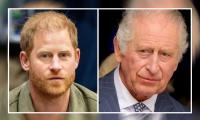 Prince Harry’s ‘unrealistic’ Hopes Get Dashed: ‘Sincerity For King Charles Is Under Question’
Prince Harry’s ‘unrealistic’ Hopes Get Dashed: ‘Sincerity For King Charles Is Under Question’ -
 Meghan Markle's New Product Sells Out Within Minutes
Meghan Markle's New Product Sells Out Within Minutes -
 Revealed: Who Leonardo DiCaprio Was Talking To In Viral Golden Globe Video
Revealed: Who Leonardo DiCaprio Was Talking To In Viral Golden Globe Video -
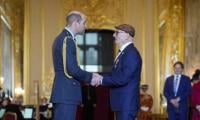 Prince William Represents King Charles At Windsor Castle Ceremony
Prince William Represents King Charles At Windsor Castle Ceremony -
 'Hotel Transylvania 5' Gets Major Update By Film's Star
'Hotel Transylvania 5' Gets Major Update By Film's Star -
 PlayStation Plus Adds Over 300 Hours Of Gameplay Across Massive New Titles
PlayStation Plus Adds Over 300 Hours Of Gameplay Across Massive New Titles -
 Mandy Moore On Mom Friendships Amid Ashley Tisdale's Mom Group Claims
Mandy Moore On Mom Friendships Amid Ashley Tisdale's Mom Group Claims -
 Justin Baldoni Objects To Removing Taylor Swift's Name From Case
Justin Baldoni Objects To Removing Taylor Swift's Name From Case -
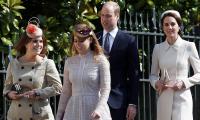 Princess Eugenie, Beatrice Warned About Royal Titles After They Turn Down Prince William's Request
Princess Eugenie, Beatrice Warned About Royal Titles After They Turn Down Prince William's Request -
 Samsung One UI 8.5 Adds Fully Customisable Unlock Animations
Samsung One UI 8.5 Adds Fully Customisable Unlock Animations -
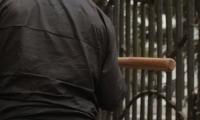 Injured By Bullets, New York Father-son Duo Beat Alleged Gunman With A Bat
Injured By Bullets, New York Father-son Duo Beat Alleged Gunman With A Bat -
 Annular Solar Eclipse 2026: Here's Everything To Know About The ‘ring Of Fire’
Annular Solar Eclipse 2026: Here's Everything To Know About The ‘ring Of Fire’ -
 Blake Lively Gives Up Hopes Of Taylor Swift Reconciliation?
Blake Lively Gives Up Hopes Of Taylor Swift Reconciliation?

